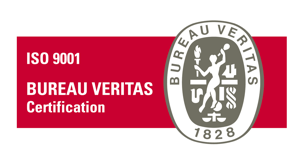Article

Examination of Inventive Step at INPI
The new French law “PACTE” (Business Growth and Transformation Action Plan) published in May 2019 changes patent examination proceedings at the INPI (French National Institute of Industrial Property). Inventive Step (Article L611-14 IPC) of the subject-matter of the claims is now analyzed by the Patent Examiners at INPI and is a basis for rejecting a patent application during Examination.
These new examination proceedings are effective for patent applications filed from May 22, 2020. As the examination starts after the establishment of the Preliminary Search Report, the first objections of INPI regarding inventive step are expected to be issued in the first semester 2021.
1. The Court of Appeal of Paris is the referring body
While INPI’s practice regarding examination of inventive step may be inspired by EPO practice, INPI is not under the jurisdiction of the EPO but rather under the jurisdiction of the Paris court of appeal (Article D411-19-2 IPC).
Any decision of rejection by INPI must be appealed before the “Cour d’Appel de Paris” (Paris Court of Appeal). The Paris Court of Appeal is the second degree of jurisdiction for all litigation regarding patents (infringement cases, opposition cases, INPI rejections, inter alia).
Therefore, it is important to note that the Paris Court of Appeal’s case law and practice are the reference for INPI for assessment of inventive step. The case law of the European Patent Office (EPO) is also an important source, because the EPO examines and grants patents intended to be in force in France. But the referring body of INPI regarding assessment of inventiveness remains the Paris Court of Appeal, which has its own case law regarding inventive step, especially from former cases of infringement litigation where validity of the opposed patent was challenged with an invalidity ground based on lack of inventive step. The decisions of the Paris Court of Appeal can be appealed solely on points of law before the French Supreme Court: “Cour de Cassation”. However, this appeal is not “of right” as the Cour de Cassation decides which appeals it accepts to hear.
2. Case law differences compared to the EPO: definition of the person skilled in the art
The approach to evaluate inventive step, described in INPI’s Guidelines (Section VII 5) and by the Cour de Cassation (C.Cass Paris 4/11/87 PIBD 1988 n°429-III98), is quite similar to the practice of the EPO, both privileging a Problem-solution approach to avoid "ex post facto" analysis. The problem-solution approach focuses on whether or not the claimed invention, starting from the closest prior art and the objective technical problem, would have been obvious to the skilled person.
Nonetheless, based on INPI’s Guidelines, there are several differences with EPO approach.
First of all, EPO case law is very detailed about how to determine the closest prior art and the objective technical problem, whereas INPI’s Guidelines (Section VII 5.4. b)) are very brief regarding this matter.
Secondly, the way the person skilled in the art is determined seems to differ. In EPO practice the person skilled in the art is the person qualified in the technical field of the objective technical problem (EPO Guidelines G - VII – 3). INPI’s Guidelines (Section VII 5.2. b)) define the person skilled in the art as a person qualified in the field of technology related to the preamble of the claims (often the person skilled in the technical field of the closest prior art).
The way inventive step is examined by INPI will be largely determined by the way the Paris court of appeal evaluates this criteria mainly during patent infringement trials.
Thus, the difference of evaluation of inventive step between INPI’s Guidelines and EPO practice is partly due to INPI’s consideration of the Paris Court of appeal’s decisions, especially regarding the definition of the person skilled in the art which is usually an important starting point of the Paris Court’s decisions.
3. Possible consequence
Defining the person skilled in the art in the technical field of the closest prior art, rather than relative to the technical effect of the feature solving the problem to overcome according to the EPO’s approach, would facilitate argumentation against combinations of documents.
It can be expected then to have inventive step examination at INPI more favorable to the applicant than at the EPO. One possible scenario typically would be a direct grant by INPI immediately after a sound contestation of a combination of documents in very different technical fields. This would not increase the number of office actions and thus prosecution would remain less expansive at INPI than at the EPO.
4. No specific fee for examination
INPI published a new schedule of fees applicable from April 1st, 2020. It should be noted that:
- there is no new fee for patent examination;
- the other fees (filing fee, search fee) did not increase significantly.
Thus, filing patent applications in France before INPI will remain a good option from an economic point of view.



























